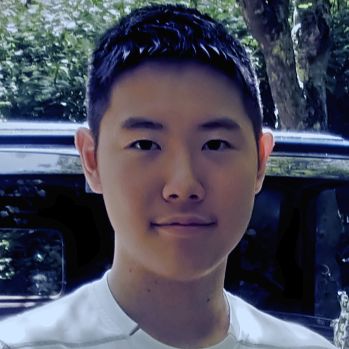From as early as 1987, the Punahou English Department has distinguished itself from other subjects by declining to offer A.P. courses for either of the two English exams College Board currently offers. Instead, it offers two honors courses.
Dr. Holly Greenwell, the former English Department Chair who teaches both Junior English Honors (JEH) and Senior English Honors (SEH), divided the rationale into three segments.
The first, Greenwell mentioned, is that English teachers value the freedom and creativity in quantity of content and text selection that can be lost in an A.P experience which emphasizes a rigidly standardized curriculum. She drew from her own experience as a former A.P. English teacher at another school, in which she felt that teaching AP English “was like skipping stones across the broad surface of a deep lake.” Additionally, she felt that keeping the structure of the English honors courses was beneficial in attracting keen students who did not necessarily desire to take the A.P. exam.
Second, Greenwell commented that the Punahou English Department has not felt comfortable with designing a course for the purpose of taking a test. Even with most A.P. courses having undergone massive restructuring over the last 5 years or so in pursuit of renewing their relevance, Greenwell noted that the A.P. curriculum still prefers to paint a broad brush over the English curriculum. Thereby, A.P.’s focus on shallowly covering a vast quantity of materials directly conflicts with the English Department’s emphasis on the deep, iterative honing of skills and competencies.
Ms. Candace Cheever, the current English Department Chair, further elaborated that “our department doesn’t focus on ‘coverage’ of any particular genre, literary period, or author. We want students to engage with diverse styles of writing and perspectives, and our core learning outcomes focus on communication in speaking and writing, critical thinking, collaboration, creation, empathy, and embracing challenges.” Cheever noted that not employing final exams, for that matter, stems from this same philosophy.
Lastly, Greenwell stated that there remains much debate over the effectiveness of “advanced programs” that separate students based on ability. On one side of the spectrum, she noted, is the teacher’s feeling of obligation to offer a place where even the most advanced English students can meet with a strong challenge.
On the other side of the spectrum is the argument of heterogeneity over homogeneity; some educators hesitate to label students as either “regular” or “advanced.” Greenwell mentioned that mixed classes consisting of students ranging from those who are completely uninterested to those who are deeply passionate can, with the right pedagogical structures, sometimes foster greater growth for all participants than in an entirely homogeneous environment.
Thus, Greenwell noted, the two English honors courses are a compromise between heterogeneity and homogeneity. On one hand, the honors courses are more “advanced” than any other English classes; on the other hand, these courses are specifically designed so that students can succeed as long as they are willing to dive in and work harder than they have in prior English classes. In effect, the English honors courses were crafted with the intent to avoid exclusivity or unnecessarily prohibitive prerequisites.
Aside from the philosophy of the English honors courses, Greenwell added insight on the challenges she faced in paving the road for a comprehensive honors program so Punahou students are offered a rigorous English experience.
Greenwell commented that the old model of Junior English Honors (JEH), in which any Junior could opt into an honors group of kids and read literature unrelated to their day-to-day English courses, was not taken all too seriously by both faculty and students. Teachers were not paid to teach this class; students did not receive grades and the class only met once per cycle for an hour.
As such, Greenwell entirely rebuilt JEH into a full-fledged, semester-long honors course complete with a robust curriculum centered on the Socratic seminar style. She noted that this version ran excellently with two sections of students signed up in the first year; the following year, four sections. JEH continues to this day with steady enrollment.
Yet despite this success, Greenwell described a second hurdle – namely, the jarring discontinuity Juniors and Seniors had felt as they transitioned from JEH to Senior English Honors (SEH). This discontinuity stemmed from the differing objectives between Greenwell’s reformed JEH and the old model of SEH, which was first created in the seventies. As such, when the opportunity presented, Greenwell was faced with the task of overhauling SEH, which she did with Dr. David Scrivner, an English teacher who taught at Punahou until this year.
Building off of these systemic reforms, Cheever and a group of English teachers have recently created a “Literary Seminar” course for 10th-grade students. This is currently the only general elective English course offered in the department, and it is the rough Sophomore equivalent to JEH and SEH.
Cheever commented that “This course created the opportunity for students to immerse themselves more fully in the study of English during their tenth-grade year.” Having begun on a rocky start as it was launched but canceled in 2019 due to lack of enrollment, Cheever expressed relief that enrollment has stabilized in recent years.“I understand the argument for other courses that allow students to challenge themselves and be among others who want to do the same,” Cheever concluded, which sums up the purpose of the current English Honors program.


